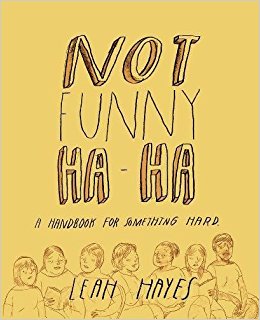The Only Right that is too Often Exercised Alone
 The most diverse workplace I have ever known was a nursing home kitchen with workers from age 18 to 82 of many races and genders.
The most diverse workplace I have ever known was a nursing home kitchen with workers from age 18 to 82 of many races and genders.
Kitchens breed a complex affection. We saw each other every day, taking two or more meals together. I developed favorite coworkers — the washers who will plow through the dishes quickly, not the washers who realize they are paid the same no matter how many plates they wash in an hour. We celebrated each other’s joys. The cook might bake a small cake to celebrate a staff wedding, or streamers might appear outside the dietitian’s office on her birthday. On Friday we might go drinking — it was a special challenge to pressure the people working the dinner shift on Friday and the breakfast shift on Saturday to do a “turn and burn.”
It was on one of those Fridays that my coworker Erin told us she was pregnant, that it was unplanned and unwanted, and that she didn’t know what to do. She was likely, she said, to have an abortion.
On another Friday, in my home, maybe a week or so later, I had friends over — friends from both the kitchen and from college. I was 21, I was broke, and I was teased mercilessly for serving Milwaukee’s Best beer. Erin drank three of them in an hour, which I know wouldn’t make a koala bear tipsy. Nonetheless, I was young, I was stupid, and so I said to her: “You’re drinking?” I wasn’t sure she was 21 even, but I was sure she was pregnant.
She got flustered, angry, and said to me: “Yes. I’m having an abortion. If I drink, if I hurt it by drinking, the abortion will be easier to live with.”
This was the moment when I realized I had no idea what a woman choosing an abortion experiences.
People argue about whether abortion is a right, the way free speech is a right or gun ownership is a right. They argue about whether the American Health Care Act will reduce access to abortions and infringe upon women’s rights. (NPR says it will, by reducing the availability of plans that cover abortions.)
The language of rights is powerful, and it organizes political action around abortion. But having an abortion is not like standing at the corner of Lake and Superior to protest American military interventions in the Middle East. Having an abortion is not like the freedom to attend a church or own a gun or vote. The exercise of those rights is supported by community. I can find people wearing Guy Fawkes masks to show me the ropes in protesting outside Minnesota Power. Churches welcome new members, and polling stations are staffed by helpful volunteers handing out stickers. Exercising your right to an abortion is unlike the exercise of any of these rights. It requires great personal strength to exercise this right, often alone.
Where does someone go for support in exercising her right to an abortion? Leah Hayes’ Not Funny Ha Ha: A Handbook for Something Hard (Fantagraphics Books) has helped me, and the pictures in this essay are from her book.
My first exposure to abortion was in high school literature class, in the Hemingway story, “Hills Like White Elephants,” which is celebrated for invoking abortion without using the word.
So when Leah Hayes tells me there are two kinds of abortion, “surgical” and “medical,” my mind is immediately blown. “Isn’t everything surgical also medical?” my ignorant brain questions. One form of abortion requires surgery and the other involves taking medicine.
Hayes walks through both types of abortion, using the stories of two girls to show the processes and the physical changes. Women considering an abortion need this information, and everyone who loves them and supports their choice needs it too. This book is friendly, accessible, like a note passed to you by a friend in class. I wish I’d had this note, from this friend, when I was 21. I could have been a better friend to Erin — I would have had an inkling of her choice and her struggle, instead of the silence I learned from Hemingway.

Abortion rarely appears in popular culture, even though it happens frequently. According to the CDC, 664,435 legal induced abortions were reported in 2013 — about 200 abortions per 1,000 live births. Abortion appeared as a subplot to someone else’s story, as in Dirty Dancing. (The romance is pushed forward by an illegal abortion in the years before Roe v. Wade.) Critics have talked about the importance of a popular movie talking about abortion in HuffPost UK and Harper’s Bazaar. But Dirty Dancing is not Penny’s story.
What would it look like to tell Penny’s story? Abortion isn’t just about anesthesia, about nausea, about increased bleeding (though Hayes shares all of those things). I don’t know that we have Penny’s story yet. (Maybe some readers of this essay can help me with recommendations.) We need it. We need it because the burden of the exercise of this right should not fall on one woman, alone. Hayes encourages those choosing an abortion to seek the support of family and friends.

I’m a professor of communication, but some communication still puzzles me. I still don’t know whether Erin was seeking help when she shared her choice. Maybe she was afraid to ask for help directly. Perhaps just sharing the fact of her decision was a way to ask for support.
Twenty years later, I wonder whether I would know what to do today. It’s not like I know that much more about the decision and experience of abortion now than I did when I was 21 — just one good book, I guess.
But I am committed to the idea that the exercise of this right requires the same support from a community that the exercise of all the other rights offer. It’s ninety years since “Hills Like White Elephants” — we know how to call abortion by its name. It’s thirty years since Dirty Dancing, and we know that abortion is not the backdrop to someone else’s story, but a story in its own right. It’s not just the story of the woman making the choice. It is our story, and we must be ready for our part in it.
Recommended Links:
Leave a Comment
Only registered members can post a comment , Login / Register Here















9 Comments
RDW
about 8 years agoNorthern_Owlbear
about 8 years agoHelmut Flaag
about 8 years agoDavid Beard
about 8 years agoBadCat!
about 8 years agoDavid Beard
about 8 years agoudarnik
about 8 years agoHelmut Flaag
about 8 years agoDavid Beard
about 7 years ago